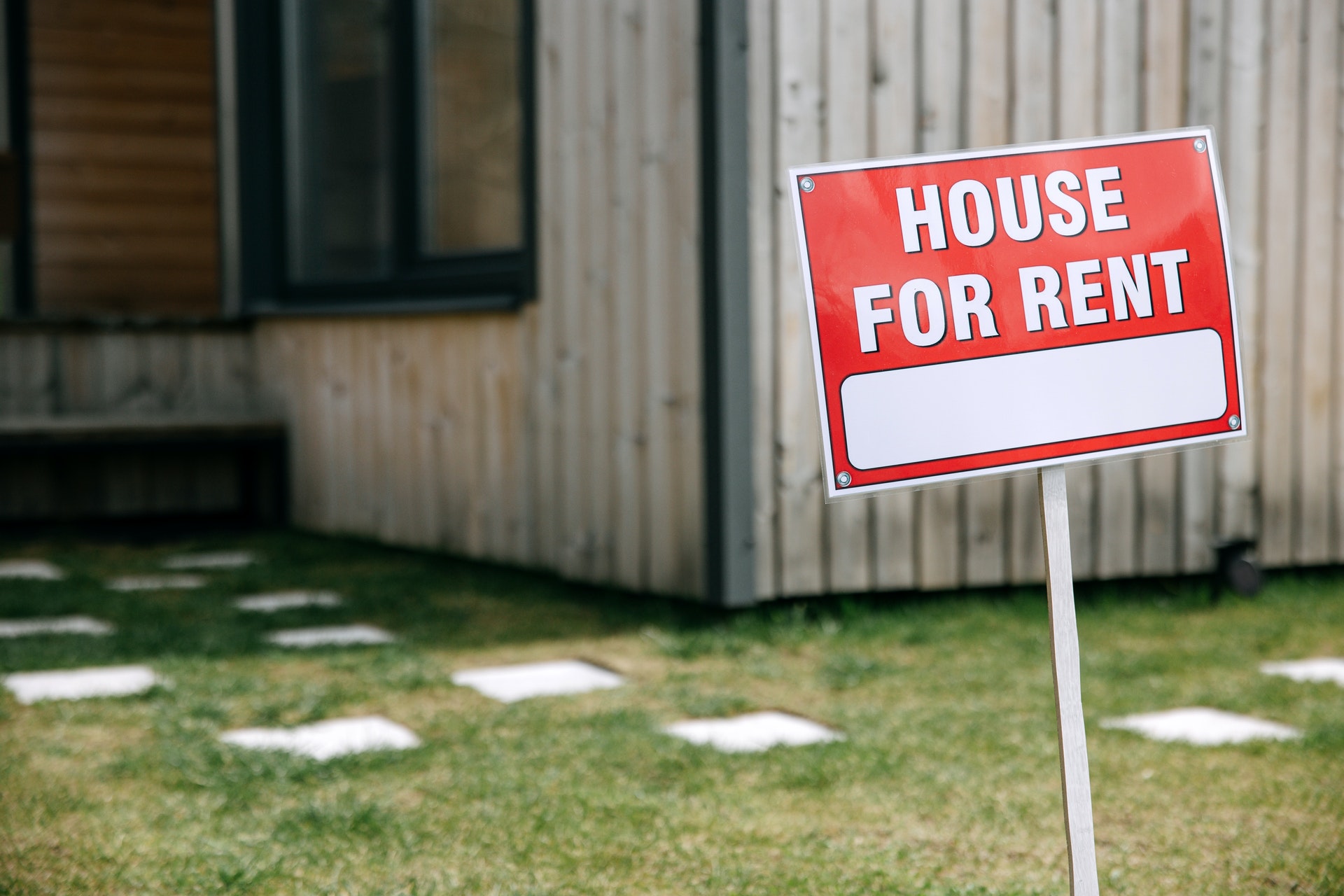If you are considering venturing into the world of rental property investment, you are not alone. This is a popular way to invest money and can be very profitable. However, there are some things to consider before getting started.
In this blog post, we will outline the basics of rental property investment and what you need to know before starting out.
If you are interested in building wealth through rental property investments, let us help you with our expertise in selling a rental property!
What is rental property investment?
Rental property investment refers to the purchase of a property with the intention of renting them out to tenants. The rental income you receive from your tenants covers the mortgage payments on the property and provides you with a profit.
How to get started with rental property investments?
If you are ready to get started in rental property investment, there are a few things you need to do. First, educate yourself on the basics of rental properties. Read books, attend seminars, and talk to experienced rental property investors. Next, create a business plan. This will help you map out your goals and strategies for rental property investments. Finally, start searching for properties that fit your criteria and budget.
What to consider before starting investing in rental properties?
Before you start investing in rental properties, there are a few things you need to consider.
Decide if Rental Property Investing is Right for You
To get the most out of income property, you'll need an accountant's attention to detail, a lawyer's understanding of landlord-tenant rules, a fortune teller's vision, and, if you want to handle your rental property yourself, a landlord's stern but kind demeanor.
Before you get involved, think about whether you have enough time, inclination, and expertise to manage a rental property. While a rental property is regarded as a passive investment, it does not imply that you are completely hands-off when it comes to maintaining it.
Real estate investments may outperform other long-term investments like equities in the long run, although the outcomes might vary greatly based on the location and the individual property. You'll want to think about whether you think you'll be able to boost rent payments over time and why the local economy will support it, among other things. Whether you finance the property, as well as the conditions of any financing, can have a big influence on the final return.
If maintaining a rental property seems like a lot of work but you still want to invest in real estate, a real estate investment trust, or REIT, is a good option. REITs are publicly listed real estate investment trusts that generally pay out a considerable portion of their revenues in dividends to shareholders. This might be a good way to get into real estate investment without having to deal with property management.
Location, Location, Location
When it comes to income property, the old realtor adage about the significance of location takes on a new meaning.
Liquidity and growth are two methods for investors to profit. Investors in some places may want larger cash flow to compensate for slower appreciation. However, if investors anticipate a significant increase in value, they may be ready to forego some cash flow in order to benefit from that increase. As a consequence, housing appreciation outpaces rent increases, and residences appreciate despite producing minimal cash flow.
Clear Out Debt
When you are starting a new investment it is always better to pay your personal debts if you have any. This is especially important if you are going to apply for a mortgage loan.
Debt may be part of a savvy investor's portfolio investing strategy, but a new investor should avoid it. Buying a rental property may not be the best option right now if you have student loans, overdue medical costs, or kids who will be attending college shortly.
Buying or Financing? Which is the Best Option for You?
Is it better to buy with cash or take out a mortgage loan for your investment property? This is determined by your investing goals. Cash payments may help you maintain a positive monthly cash flow. Consider the case of a $100,000 rental property. With rental income, taxes, and depreciation a $100,000 investment may yield $9,500 per year or a 9.5 percent yearly return.
Financing, on the other hand, might yield a higher profit. For example, suppose an investor puts down 20% on a home, and the mortgage compounds at 4% per year. After running expenditures and extra interest is deducted, the earnings total $5,580 per year. The investor's cash flow is less, but the 27.9 percent yearly return on the $20,000 investment is significantly larger than the 9.5 percent gain by the cash buyer.
Beware of the High-Interest Rates
Just because a lender is willing to help you with financing doesn't imply that's the route you should go. Some lenders levy exorbitant interest rates, making it difficult to break even on your rental property.
An investment property's interest rate is greater than a typical mortgage's. That so, it's critical to look around for fair interest rates that won't cut into your property's profit margin. Other home-buying costs to consider include real estate agent fees, mortgage fees, property closing charges, and so on.
Invest in Landlord Insurance
Rental property owners always should acquire landlord insurance along with homeowners insurance. This sort of insurance often compensates for damage to property, loss of rental income, and liability protection in the event that a tenant is harmed due to a lack of property care.
Keep in mind that normal homeowner's insurance may not cover losses suffered while the house is being rented out. Make sure you're properly covered by contacting your insurance agent.
Know Your Legal Rights
Landlord-tenant regulations in the jurisdiction and area should be familiar to rental owners. To avoid legal quarrels, it's critical to understand your tenants' rights and duties relating to security deposits, lease obligations, eviction procedures, fair housing, and other issues.
Have a Budget for the Unexpected
The costs of maintenance and upkeep aren't the only things that eat into your rental income. A disaster, such as roof damage from a storm or burst pipes ruining a kitchen floor, is always a possibility. Intend to set aside 20% to 30% of your rental income for these types of costs so that you have enough money to pay for repairs on time.
Avoid Fixer-Uppers
Buying a fixer-upper is a typical error made by many first-time rental property investors. Avoid properties that require a lot of extra TLC if you're a first-time property investor. You could obtain a decent price, but the repairs will cost you a lot of money.
Consider a fixer-upper if you're familiar with property repairs and don't mind investing lots of money and time. Remember that buying a house in good shape is far preferable to buying one that requires work. Choose the property that requires the fewest repairs to make the process easy for yourself.
Calculate your Expenses & Margin
Your prospective property's operational expenditures will range from 35% to 80% of gross operating income. If your monthly rent is $1,500 and your running expenditures are $600, your operating expenses are 40%. Use the 50% rule for even simpler calculations. Expect to spend $1,000 in total expenditures if your monthly rent is $2,000 per month.
Individuals should aim for a 10% return on investment. Annual maintenance expenditures should be estimated at 1% of the property value. Homeowners insurance, prospective homeowners association fees, property taxes, monthly expenditures such as pest treatment and gardening, as well as regular maintenance charges for repairs, are all factors to consider.
You can use our rental cash flow calculator to calculate your prospective earnings from your rental investments!
Property Management: Will you Do it or Do you Need a Professional Property Manager?
The most difficult aspect of purchasing a property is managing it as a homeowner. Property management can drastically affect your rental's profitability. If you don't properly manage your property, you may be forced to sell it prematurely or, even worse, lose it and go bankrupt.
To make things easier for themselves, investors can hire a professional manager and pay them 10% of the rental revenue. Even yet, this does not negate your ability to operate your firm, as this is still the investor's obligation. You must still make sure that your investment is profitable and works well.
Benefits of Rental Property Investing
There are a variety of reasons to buy rental properties. While property investing has both advantages and disadvantages, the rewards frequently exceed the disadvantages.
- Cash Flow
Investing in rental properties generates a steady stream of income since money is deposited into your account on a monthly basis. The higher the number of renters, the higher the cash flow. It might be a great method to assure financial stability before retiring, or just have some extra cash on hand.
- Being in command
When you buy a rental property, you are in charge of almost everything. You have a lot of control over the type of property you buy, the tenants you deal with, and how you handle your investment. Rental offices, residential dwellings, and short-term holiday stays can all be set up based on the region.
- Tax Advantages
When it comes to owning a rental property, property investors pay little to no taxes. You may not even be taxed on the money you make from the rental. Mortgage interest, insurance, physical wear and tear, and property upkeep are all included as deductions. These tax incentives might come in handy when the cost of living rises every day.
- Appreciation of Values
Real estate properties rise in value over time. This implies that when the value of the home rises, you will earn more and be able to pay off your mortgage more rapidly. You also have the option of selling your home at a fair price when the time comes.
How to Finance for Your Rental Properties
You could have enough savings to pay for your apartment outright, but this isn't an option for everyone. Those who cannot afford to buy a home outright may benefit from obtaining financing through a mortgage loan. Remember that rental property loans are often more expensive and come with stricter requirements, such as a greater down payment or a higher credit score. Additional options for financing your house are shown below.
VA Loan
VA loans are sponsored by the United States Department of Veterans Affairs. These loans, which are only accessible to active-duty military, veterans, and qualifying spouses, have no minimum down payment or credit score requirements and allow you to buy up to seven units. You must live in one of the apartments as your principal residence. To assist you, use the Regional Loan Center Contact Finder from the US Department of Veterans Affairs. You might still be eligible for a VA loan if you have any leftover entitlement. Find out what your borrowing restrictions are.
Blanket Mortgages
A blanket mortgage uses cross-collateralization to allow you to finance numerous properties at the same time. This can be advantageous for real estate developers who are attempting to finance many projects at the same time.
FHA loans
After residing in a home for at least one year, you can receive an FHA loan for a multi-family and lease it out. Renovation, rehabilitation, purchase, and refinancing of condominiums and medical centers can all be aided by financing provided by lenders licensed by the US Department of Housing and Urban Development FHA.
Conclusion
If you know what you're doing, renting out a house can be a good investment. But you must understand that producing a consistent profit and achieving the financial stability you seek will take time. However, if you handle everything correctly, you may be able to quit your regular job and start generating passive income from your rental property.
If you're new to real estate investing, consult with a knowledgeable realtor and hire a professional property management firm to ensure that everything goes properly.
So are you ready to get started on your first rental property? Contact us today and let our team of professionals help you with their expertise to find you the perfect rental property for your goals!



